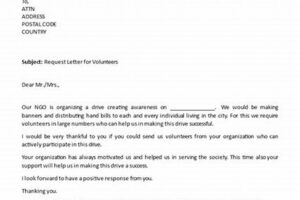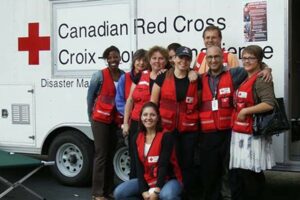Table of Contents
Meals on Wheels is a vital service that provides nutritious meals to people who are unable to prepare or obtain meals for themselves. Volunteers play a crucial role in the success of Meals on Wheels programs, helping to ensure that recipients receive the meals they need to stay healthy and independent. If you’re looking for a meaningful way to give back to your community, volunteering for Meals on Wheels is a great option.
Volunteering for Meals on Wheels is a rewarding experience that can make a real difference in the lives of others. Meals on Wheels volunteers deliver meals to people who are unable to leave their homes, providing them with much-needed nourishment and companionship. Volunteering with Meals on Wheels is a great way to give back to your community and make a difference in the lives of those in need.
In this article, we’ll provide step-by-step instructions on how to volunteer for Meals on Wheels, including the requirements, the application process, and the different types of volunteer roles available. We’ll also share inspiring stories from Meals on Wheels volunteers who have made a positive impact in their communities.
How to Volunteer for Meals on Wheels
Here are 9 important points to consider when volunteering for Meals on Wheels:
- 1. Check Eligibility: Meet age and background check requirements.
- 2. Find Local Programs: Locate Meals on Wheels programs near you.
- 3. Submit Application: Fill out an application and provide references.
- 4. Attend Orientation: Learn about the program and volunteer expectations.
- 5. Choose Role: Select a volunteer role that fits your schedule and skills.
- 6. Meal Preparation: Help prepare meals or assemble meal packs.
- 7. Meal Delivery: Deliver meals to recipients’ homes or designated locations.
- 8. Check on Recipients: Ensure recipients’ well-being and report any concerns.
- 9. Be a Friendly Face: Provide companionship and brighten recipients’ day.
By following these steps and dedicating your time, you can make a meaningful difference in the lives of those in need through Meals on Wheels.
1. Check Eligibility: Meet age and background check requirements.
Before volunteering for Meals on Wheels, it’s important to ensure that you meet the eligibility requirements set by the program. These requirements may vary slightly depending on the location and specific program, but generally include the following:
Age Requirement: Most Meals on Wheels programs require volunteers to be at least 18 years of age. This is because volunteers may be working with vulnerable populations and may need to be able to lift and carry meal packs.
Background Check: Meals on Wheels programs typically require volunteers to undergo a background check. This is to ensure the safety of both the volunteers and the recipients. The background check may include a criminal history check and a driving record check, if volunteers will be delivering meals.
Health Requirements: Some Meals on Wheels programs may have health requirements for volunteers. For example, volunteers may need to be vaccinated against certain diseases or may need to be able to pass a physical exam.
Training Requirements: Meals on Wheels programs typically provide training to volunteers before they begin delivering meals. This training may cover topics such as food safety, nutrition, and how to interact with recipients. Volunteers may also need to pass a test or assessment to demonstrate their understanding of the material.
By meeting the eligibility requirements and completing the necessary training, you can ensure that you are prepared to volunteer for Meals on Wheels and make a positive impact in your community.
2. Find Local Programs: Locate Meals on Wheels programs near you.
Once you have determined that you meet the eligibility requirements, the next step is to find a Meals on Wheels program near you. There are several ways to do this:
Online Directory: The Meals on Wheels America website has an online directory of Meals on Wheels programs across the country. You can search for programs by state, city, or zip code.
Local Agencies: You can also contact your local Area Agency on Aging or other social service agencies to inquire about Meals on Wheels programs in your area. These agencies may have a list of programs or may be able to connect you with the appropriate resources.
Word-of-Mouth: Ask friends, family members, or neighbors if they know of any Meals on Wheels programs in your area. They may have volunteered for a program in the past or may be aware of one that is in need of volunteers.
Social Media: Many Meals on Wheels programs have a presence on social media platforms such as Facebook and Twitter. You can search for these programs using keywords such as “Meals on Wheels” and your city or state. Social media can be a great way to learn more about the program and its volunteer opportunities.
By taking the time to find a Meals on Wheels program near you, you can connect with an organization that is making a difference in your community and find a volunteer role that is a good fit for your skills and interests.
3. Submit Application: Fill out an application and provide references.
Once you have found a Meals on Wheels program that you are interested in volunteering for, you will need to submit an application. The application process may vary depending on the program, but it typically involves the following steps:
- Fill Out Application Form: You will need to provide personal information such as your name, address, and contact information. You may also be asked to provide information about your availability, skills, and interests.
- Provide References: Most Meals on Wheels programs require volunteers to provide references who can speak to their character and reliability. References can be friends, family members, or former employers.
- Background Check: As mentioned earlier, Meals on Wheels programs typically require volunteers to undergo a background check. The background check may be conducted by the program itself or by a third-party company.
- Interview: Some Meals on Wheels programs may conduct interviews with potential volunteers. The interview is an opportunity for the program to learn more about you and your motivations for volunteering. It is also an opportunity for you to ask questions about the program and the volunteer role.
Once you have submitted your application and completed the necessary steps, the Meals on Wheels program will review your information and determine if you are a good fit for the volunteer role. If you are accepted as a volunteer, you will be provided with training and orientation before you begin delivering meals.
4. Attend Orientation: Learn about the program and volunteer expectations.
Once you have been accepted as a Meals on Wheels volunteer, you will be required to attend an orientation session. The orientation session will typically cover the following topics:
Program Overview: You will learn about the history, mission, and goals of the Meals on Wheels program. You will also learn about the different services that the program provides.
Volunteer Roles: You will learn about the different volunteer roles available and the responsibilities associated with each role. You will also have the opportunity to ask questions about the different roles and choose the one that is the best fit for you.
Meal Preparation and Delivery: You will learn about the process of preparing and delivering meals. This may include information on food safety, nutrition, and how to interact with recipients.
Safety and Security: You will learn about the safety and security procedures that are in place to protect volunteers and recipients. This may include information on how to handle difficult situations and how to report any concerns.
By attending the orientation session, you will gain a better understanding of the Meals on Wheels program and your role as a volunteer. You will also have the opportunity to meet other volunteers and staff members and ask any questions that you may have.
5. Choose Role: Select a volunteer role that fits your schedule and skills.
Once you have attended the orientation session, you will need to choose a volunteer role that fits your schedule and skills. There are a variety of volunteer roles available, so you should be able to find one that is a good fit for you.
Some common volunteer roles include:
- Meal Preparation: Volunteers who help prepare meals work in the kitchen to prepare and package meals for delivery.
- Meal Delivery: Volunteers who deliver meals drive to recipients’ homes or designated locations to deliver meals.
- Phone Call Volunteers: Volunteers who make phone calls check in on recipients to ensure their well-being and report any concerns.
- Special Events Volunteers: Volunteers who help with special events such as fundraisers or holiday parties.
- Administrative Volunteers: Volunteers who help with administrative tasks such as data entry or fundraising.
When choosing a volunteer role, it is important to consider your schedule, skills, and interests. You should also consider the time commitment required for the role. Some roles may require a regular weekly commitment, while others may be more flexible.
By choosing a volunteer role that is a good fit for you, you will be able to make a meaningful contribution to the Meals on Wheels program and the community.
6. Meal Preparation: Help prepare meals or assemble meal packs.
If you choose to volunteer in meal preparation, you will work in the Meals on Wheels kitchen to prepare and package meals for delivery. This may involve tasks such as:
- Measuring and mixing ingredients
- Cooking and baking food
- Assembling meal packs
- Labeling and dating meal packs
- Storing meal packs in the refrigerator or freezer
When preparing meals, it is important to follow food safety guidelines to ensure that the meals are safe for recipients to consume. You will be provided with training on food safety and sanitation before you begin volunteering.
Meal preparation volunteers play a vital role in the Meals on Wheels program. By helping to prepare and package meals, you are ensuring that recipients receive the nutritious meals they need to stay healthy and independent.
If you enjoy cooking or baking, and you have some time to spare, volunteering in meal preparation is a great way to make a difference in your community.
7. Meal Delivery: Deliver meals to recipients’ homes or designated locations.
If you choose to volunteer in meal delivery, you will be responsible for delivering meals to recipients’ homes or designated locations. This may involve tasks such as:
- Loading meals into your vehicle
- Driving to recipients’ homes or designated locations
- Delivering meals to recipients or leaving them at their doors
- Checking in on recipients to ensure their well-being
- Reporting any concerns to the Meals on Wheels program
When delivering meals, it is important to be friendly and respectful to recipients. You may be the only person they see on a regular basis, so your visit can make a big difference in their day. It is also important to be aware of any special needs that recipients may have.
Meal delivery volunteers play a vital role in the Meals on Wheels program. By delivering meals to recipients, you are ensuring that they receive the nutritious meals they need to stay healthy and independent.
If you have a reliable vehicle and some time to spare, volunteering in meal delivery is a great way to make a difference in your community.
8. Check on Recipients: Ensure recipients’ well-being and report any concerns.
As a Meals on Wheels volunteer, you will be responsible for checking on the well-being of recipients when you deliver meals. This may involve tasks such as:
- Asking recipients how they are doing
- Looking for signs of distress or neglect
- Reporting any concerns to the Meals on Wheels program
- Following up with recipients to ensure that their concerns have been addressed
It is important to be observant and to pay attention to any changes in recipients’ condition. If you notice anything that concerns you, such as a sudden change in mood or behavior, or if you suspect that a recipient is being neglected, you should report it to the Meals on Wheels program immediately.
By checking on recipients’ well-being, you can help to ensure that they are safe and healthy. You can also help to connect recipients with the resources they need, such as medical care or social services.
Volunteering to check on recipients is a great way to make a difference in the lives of vulnerable adults. By being a caring and compassionate presence in their lives, you can help them to feel safe, supported, and connected to their community.
9. Be a Friendly Face: Provide companionship and brighten recipients’ day.
One of the most important things you can do as a Meals on Wheels volunteer is to be a friendly face and brighten recipients’ day. For many recipients, you may be the only person they see on a regular basis. Your visit can make a big difference in their day.
- Smile and say hello: When you arrive at a recipient’s home, be sure to smile and say hello. This simple gesture can make a big difference in their day.
- Make conversation: Take a few minutes to chat with recipients about their day or their interests. This can help them to feel less isolated and alone.
- Listen to their concerns: Recipients may want to talk to you about their concerns or problems. Be a good listener and offer your support.
- Be respectful of their privacy: Remember that recipients have a right to their privacy. Do not pry into their personal business or ask them questions that make them uncomfortable.
By being a friendly face and providing companionship, you can help to brighten recipients’ day and make them feel more connected to their community. This is a valuable and rewarding part of volunteering for Meals on Wheels.
FAQ
Do I need any special skills or experience to volunteer for Meals on Wheels?
No, you do not need any special skills or experience to volunteer for Meals on Wheels. All you need is a willingness to help others and a desire to make a difference in your community.
How much time do I need to commit to volunteering?
The time commitment required for volunteering with Meals on Wheels varies depending on the role you choose. Some roles, such as meal preparation, may require a regular weekly commitment, while others, such as special events volunteering, may be more flexible.
What kind of training will I receive?
Meals on Wheels programs typically provide training to volunteers before they begin volunteering. This training may cover topics such as food safety, nutrition, and how to interact with recipients.
What if I have a dietary restriction or allergy?
If you have a dietary restriction or allergy, you should let the Meals on Wheels program know when you apply to volunteer. They will work with you to find a role that is safe for you.
How can I make a difference as a Meals on Wheels volunteer?
As a Meals on Wheels volunteer, you can make a difference in the lives of vulnerable adults by providing them with nutritious meals and companionship. You can also help to ensure that recipients are safe and healthy by checking on their well-being and reporting any concerns.
How do I sign up to volunteer for Meals on Wheels?
To sign up to volunteer for Meals on Wheels, you can visit the Meals on Wheels America website or contact your local Meals on Wheels program. You will need to complete an application and provide references.
Is there anything else I should know before volunteering for Meals on Wheels?
It is important to be reliable and punctual when volunteering for Meals on Wheels. You should also be prepared to interact with people from all walks of life.
If you have any other questions about volunteering for Meals on Wheels, please contact your local program.
Now that you know more about volunteering for Meals on Wheels, here are a few tips to help you get started:
Tips
Here are a few practical tips to help you get started as a Meals on Wheels volunteer:
Be reliable and punctual: When you commit to a volunteer shift, be sure to show up on time and be reliable. This is important for ensuring that meals are delivered to recipients on time.
Be friendly and compassionate: When you deliver meals to recipients, be sure to be friendly and compassionate. This can make a big difference in their day.
Be observant and report any concerns: As you deliver meals, be observant and pay attention to any changes in recipients’ condition or living situation. If you notice anything that concerns you, such as a sudden change in mood or behavior, or if you suspect that a recipient is being neglected, report it to the Meals on Wheels program immediately.
Follow all safety procedures: Meals on Wheels programs typically have safety procedures in place to protect volunteers and recipients. Be sure to follow all safety procedures, such as wearing a mask and gloves when delivering meals.
By following these tips, you can help to ensure that your Meals on Wheels volunteer experience is positive and rewarding.
Volunteering for Meals on Wheels is a great way to give back to your community and make a difference in the lives of vulnerable adults. By following these tips, you can help to ensure that your volunteer experience is positive and rewarding.
Conclusion
Volunteering for Meals on Wheels is a rewarding experience that can make a real difference in the lives of vulnerable adults. By delivering meals, checking on recipients’ well-being, and providing companionship, volunteers can help to ensure that recipients receive the nourishment and support they need to live independently and with dignity.
If you are looking for a meaningful way to give back to your community, volunteering for Meals on Wheels is a great option. The time commitment is flexible, and there are a variety of volunteer roles to choose from, so you can find a role that fits your schedule and interests.
To learn more about volunteering for Meals on Wheels, visit the Meals on Wheels America website or contact your local Meals on Wheels program. You can also find more information in this article, including tips for getting started as a volunteer.
We hope that you will consider volunteering for Meals on Wheels and making a difference in the lives of those in need in your community.






